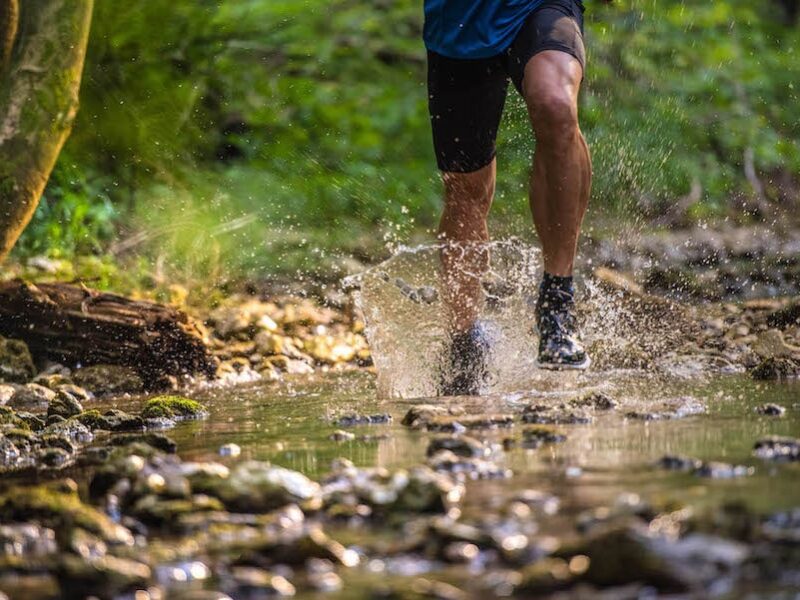
Lately, after I go for a run, or walk my dogs, my legs get so itchy. I don’t seem to have dry skin; all I notice on the skin are clusters of veins that have been there for many years. Why is this happening? In this blog, we are going to discuss what causes varicose veins to itch, ways to ease itchy veins, and how to recognize if your itching veins are a sign of chronic venous insufficiency, or vein disease.
Although many of us are familiar with the symptoms of varicose vein disease such as aching, pain, and heaviness, itchiness of the skin is ALSO a symptom of vein disease! When people have vein disease they can experience itching no matter how their veins appear on the surface. Itching does not just correlate with bulging varicose veins, but it can correlate with spider veins, and it can even occur even when there are no visible veins on the surface of the skin. That’s the way it is with vein disease—you cannot always determine if a person has this condition just by looking at the skin!
What causes your varicose veins itch?
But what exactly causes the itching? To understand this, let’s take a closer look at the circulatory system. The heart pumps blood that is rich in oxygen and nutrients. This “fresh” blood travels through arteries to supply all of the cells of your body. The veins, on the other hand, carry the “used up” blood back to your heart, lungs and other organs, so that it can be “purified” and made “fresh” again, and so the whole cycle continues, like a loop.
Since the veins are carrying the “used up” blood, that blood is no longer rich in oxygen; instead, the blood in the veins has a high amount of metabolic waste products, such as carbon dioxide and lactic acid, which are produced by the cells of the body. These metabolic waste products are somewhat toxic to the body if they are not briskly carried back to the heart, lungs, liver and kidneys, where the “purification” occurs.
The blood in the legs is “gravitationally challenged”. The blood needs to travel upward, against the force of gravity, to get back to the purifying organs. In order for the blood to travel upward in the veins of the legs, there are tiny, one-way valves inside of the veins. These “check valves” allow the blood to flow upward, towards the heart, but any time that the blood starts to fall downward within the veins, the tiny valves shut, preventing the wrong-way flow from occurring. Unfortunately, these tiny, delicate valves can become leaky. When they leak, too much blood is able to flow back downward, towards the direction of the feet, and this is the wrong direction for blood in the veins to flow. This causes too much pressure and too much stagnation of blood in the veins that are not working correctly. When the venous blood is more stagnant than it should be it causes these relatively-toxic metabolic waste products to accumulate in certain areas, and that acts as an irritant to the region where the stagnation is occurring, causing inflammation, and that causes the sensation of itching and other discomforts.
Why do venous valves fail?
Venous valves can fail for many reasons including genetics, pregnancy, hormone changes, cancer, injury, accidents, sports injuries, surgery, as well as advanced age. This valve failure is a progressive condition that gets worse over time, and it may also cause veins to become more visible on the surface—either in the form of bulging veins or spider veins. It is important to note, however, that some people have the leaky valve condition occurring, and feel symptoms accordingly, even though their legs may look perfectly fine on the outside. Similar to other common medical conditions like diabetes, high blood pressure, and high cholesterol, detailed testing is required in order to determine if vein disease is occurring; you cannot always see it with the “naked eye”.
Schedule your consultation today
What can you do to ease itchy varicose veins?
People experiencing itching in their legs often blame “dry skin”, but the symptom often persists despite having tried multiple creams and lotions. It’s very frustrating! However, if the root cause of the itching is vein disease, creams and lotions might help partially, but they are not addressing the source of the problem. This symptom which may seem to be just an annoyance should really be viewed as a warning sign. If left untreated, this chronic irritation can lead to an irreversible degradation of the skin and surrounding tissue. Chronic venous insufficiency, or vein disease, is a progressive disease process; if the root cause of vein disease isn’t treated, the condition, and its associated symptoms, will only get worse over time.
So what can be done about the itching? In short, the best option is to target the cause – varicose vein disease, and you will feel relief. However, here is a list of things that may provide you with temporary itch relief:
- Compression stockings are designed to help improve venous flow by applying pressure to the lower legs and ankles, which may reduce the diameter of major veins by increasing the volume and velocity of blood flow, helping blood flow up toward the heart and preventing blood from dropping downward toward the feet. This can also help reduce swelling and discomfort.
- Light exercise such as walking throughout the day helps keep the leg muscles contracting, improves circulation, and can help maintain a healthy weight.
- Use topical creams and ointments such as antihistamines, topical steroid, anti-itch or lotions. These can calm the skin and target the histamine reaction, temporarily reducing the itch.
- Don’t Scratch! Remember those sage words from your mom, following a vicious attack by mosquitos? “Don’t scratch, it’ll only make it worse!” Well, she was right. Although it can provide a temporary relief, scratching worsens the itching sensation. Scratching can further damage the skin and veins leading to an increased histamine production in the body. It can also potentially lead to infection.
How can you know if your itchy skin is related to varicose vein disease?
Here are some common signs that your itchy skin is related to a larger problem of varicose vein disease:
- Irritated, red, itchy, swollen skin, particularly over any varicose or spider veins
- A sensation of fullness, heaviness, aching or cramping after extended periods of standing or walking
- Open sores, possibly oozing and crusting
- Thickened, discolored skin around the ankles or shins
However, if you are unsure, speak to your primary care physician and/or dermatologist. Also, consider seeking out a consultation with a medical practice that specializes in vein care. Get to know the vein specialists at USA Vein Clinics. Ultimately, no matter what the outward appearance, the only way to know for sure if venous insufficiency is the cause of the itching is to have an ultrasound performed to evaluate for the condition.
Treat your itchy veins at the source
If you experience any of these symptoms, the best approach is to seek the help of a team who specializes in venous disorders. Vein specialists (“Phlebologists”) are medical providers who are dedicated to the diagnosis and treatment of venous diseases. A Phlebologist will perform a comprehensive evaluation, and if vein disease is found to be the cause, a personalized treatment plan will be created in order to treat the condition, in an effort to improve your symptoms, including the itchiness.
Medically Reviewed By:
Dr. Yan Katsnelson is a philanthropist, business owner, and highly skilled cardiac surgeon. He is the Founder and CEO of USA Vein Clinics, which is part of USA Clinics Group, the parent company of USA Fibroid Centers, USA Vascular Centers, and USA Oncology Centers, with more than 100 facilities nationwide. Dr. Yan has established himself as a strong advocate for accessibility and affordability of the most advanced medical care close to home. His mission is to create a positive experience for each patient with compassionate, personalized, and expert care.

